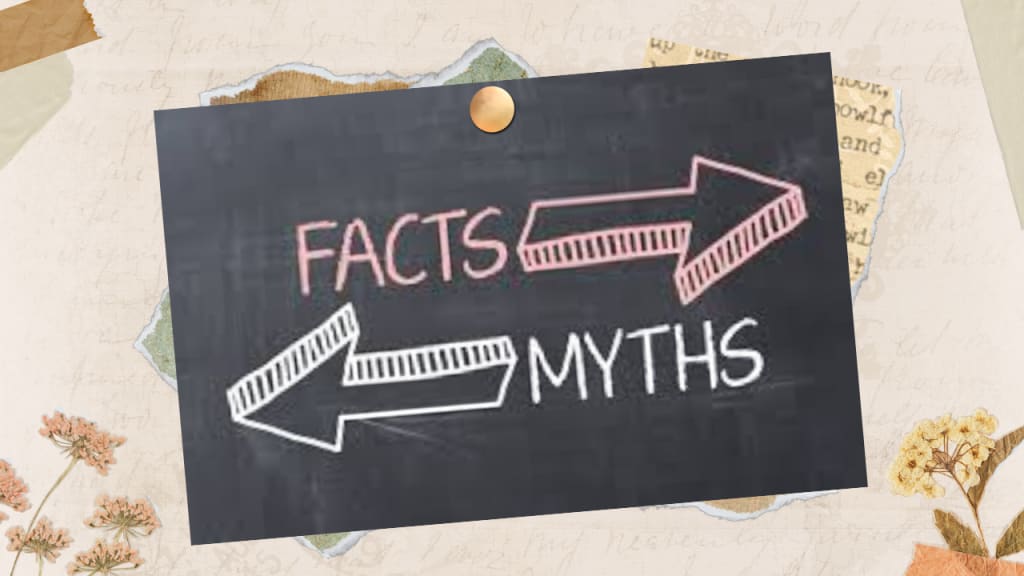PCOS Demystified:
Debunking Common Myths and Misconceptions

Introduction
PCOS (Polycystic Ovary Syndrome) is a complex hormonal disorder that affects millions of women worldwide. Despite its prevalence, PCOS remains shrouded in myths and misconceptions, leading to confusion and misinformation. In this article, we will demystify PCOS by debunking common myths and shedding light on the realities of this condition. Prepare to be intrigued as we unravel the truth and empower women with accurate knowledge.
1. Myth: PCOS is Just a Reproductive Issue
PCOS goes far beyond reproduction. While it does affect the reproductive system, PCOS is a systemic disorder that impacts various aspects of a woman's health. It can lead to hormonal imbalances, insulin resistance, metabolic disturbances, and increased risks of conditions like diabetes and cardiovascular disease. Understanding the comprehensive nature of PCOS is crucial to addressing its management and potential complications.
2. Myth: All Women with PCOS Have Cysts on Their Ovaries
Contrary to popular belief, the presence of cysts on the ovaries is not a universal symptom of PCOS. In fact, not all women with PCOS have visible cysts. The diagnosis of PCOS is based on a combination of symptoms, hormone levels, and ultrasound findings. Cysts on the ovaries, while common, are not the defining characteristic of PCOS.
3. Myth: PCOS Only Affects Overweight Women
PCOS does have a strong association with weight gain and obesity, but it can affect women of all body types. Thin women can also have PCOS, as weight gain is not a prerequisite for its diagnosis. The relationship between PCOS and weight is complex, with hormonal imbalances playing a significant role. It is essential to understand that PCOS can occur in women of any weight or size.
4. Myth: PCOS Is Not Treatable
PCOS is a chronic condition, but its symptoms and complications can be managed effectively. Lifestyle modifications, including regular exercise, a balanced diet, and stress management, form the cornerstone of PCOS treatment. Medications can also be prescribed to address specific symptoms such as irregular periods, hirsutism, or fertility issues. With the right approach, women with PCOS can lead fulfilling lives.
5. Myth: Women with PCOS Can't Get Pregnant
While PCOS can present challenges for conception, it does not mean that women with PCOS cannot get pregnant. With appropriate medical intervention, lifestyle changes, and fertility treatments, many women with PCOS have successfully conceived and become mothers. Seeking guidance from a healthcare professional with expertise in reproductive health is crucial for women with PCOS who desire pregnancy.
6. Myth: PCOS Is Just a Hormonal Imbalance
While hormonal imbalances are a key feature of PCOS, the condition is much more complex. Insulin resistance, a condition where the body's cells do not respond adequately to insulin, is often associated with PCOS. This can lead to metabolic disturbances, weight gain, and an increased risk of developing type 2 diabetes. PCOS requires a comprehensive approach that addresses both hormonal and metabolic aspects.
7. Myth: Birth Control Pills Are the Only Treatment for PCOS
While birth control pills can be prescribed to manage certain symptoms of PCOS, they are not the only treatment option. Each woman's situation is unique, and treatment should be tailored to her specific needs. Lifestyle modifications, dietary changes, and other medications can be recommended to address symptoms and improve overall health. A personalized treatment plan is essential for effective management of PCOS.
Conclusion
PCOS is a complex hormonal disorder that affects millions of women worldwide. By debunking common myths and misconceptions, we can demystify PCOS and provide accurate information to empower women. It is crucial to understand that PCOS is not just a reproductive issue but a condition that requires comprehensive management. By dispelling myths and sharing the truth, we can support women with PCOS in their journey towards better health and well-being.
About the Creator
Enjoyed the story? Support the Creator.
Subscribe for free to receive all their stories in your feed. You could also pledge your support or give them a one-off tip, letting them know you appreciate their work.





Comments
There are no comments for this story
Be the first to respond and start the conversation.